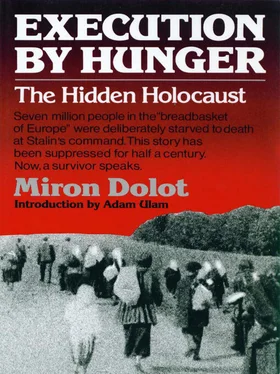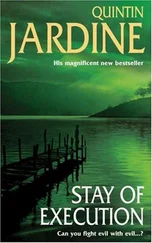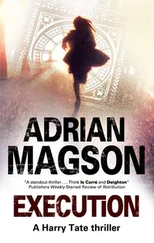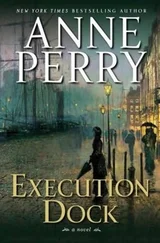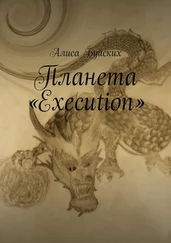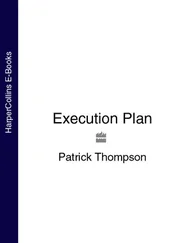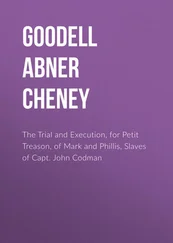After a deliberate pause, he continued:
“We have had enough of your wit,” and pounding the table with his fist, he shouted, “Proceed, Comrade Judge!”
Petro was allowed to finish his plea. It was not a plea for forgiveness. He only stated that if Antin were guilty on some counts, it was only because he had involved him. He asked the court to let Antin go free. The court then adjourned for deliberation.
Shortly afterward, the stage curtain was raised to reveal the court and officials.
Sydir, the judge, announced in a frightened voice that inasmuch as the crime went beyond the jurisdiction of the kolhosp court, the case under consideration would be transmitted to the superior judicial organ, whatever that was, and to the state security organs. The defendants were to remain in custody.
That was the last time we saw Petro and Antin, the village jesters, poor farmers, and staunch supporters of the October Revolution.
After the case of Petro and Antin was closed, a few minor cases were tried. A quiet farmer had to answer why he did not meet the state delivery grain quota. We believed this was a show trial, since the overwhelming majority of the villagers could not deliver theirs either. It was his misfortune to be chosen as the scapegoat to show the consequences. He was labeled “an enemy of the people,” and his case was also to be submitted to the higher court and the state security organs.
This also happened to two other farmers. One was accused of selling his horse before joining the collective farm; another was to be punished for calling a member of the Komsomol a janissary. [18] Janissary (or Janizary ) was a soldier of an elite Ottoman (Turkish) army unit. The Janissaries were exclusively recruited by forced levy of Christian children. They were known for their implicit obedience. In Ukrainian, this word is synonymous with henchman.
The next case was different. Two wretched farmers were called to the bench. They were ragged. Their faces were bearded and covered with dirt. They did not speak to each other; it was clear that they were not on speaking terms. One of them had a favorite fishing spot that he considered his own. When he came there early one morning he found it occupied. A neighbor of his had also found this spot attractive. An argument ensued. The first farmer wanted to have his favorite fishing spot back; he claimed that he was used to it; he had improved it; and had been fishing at that particular spot for years. But the other farmer was also stubborn and saw no reason why he should yield to his neighbor. After all, he argued, the river, the fish, the water, the air, in fact, everything belonged to all the people. Wasn’t that what the propagandist had told them at the Sunday meeting? The first farmer was not impressed by such an argument and landed a square blow between the other’s eyes. A fight followed, and the intruder consequently found himself with a bloody nose and two black eyes.
He therefore decided to take revenge and complained to the village soviet; that was how they both landed in the kolhosp court.
The interesting part about it all was the verdict. It was pronounced by Comrade Cherepin personally. He probably considered it a matter too serious to entrust even to Sydir, the judge.
Comrade Cherepin announced that inasmuch as the rivers, land, and forests belonged to all the people, both the plaintiff and defendant were guilty of trespassing on public property and therefore had committed treason. They were each convicted to two weeks of forced labor.
Panas Kovalenko (not related to Sydir, the judge), a poor farmer, now a member of the collective farm, did not know what the word zhlob meant. Nevertheless, it brought him to the kolhosp court, and consequently, cost him his life.
The incident that brought Panas to the court had its start in the kolhosp field a few days before. Spring seeding and planting had begun, and one day Panas was harrowing. It happened that on that day the county Party officials were visiting the kolhosp, and during their inspection trip through the field they spotted Panas. He noticed them also. They were standing on the road debating something. It was obvious that he, Panas, was the subject of their discussion, for one of the officials pointed at him.
Then, as Panas with his harrow came closer to them, Comrade Cherepin, who accompanied the officials, ordered him to stop. As soon as Panas did so, the officials approached him.
“What are you doing?” Comrade Cherepin asked, standing at attention like a military man.
“You see what I’m doing,” was Panas’s answer.
“What do you mean? Can’t you talk?” Comrade Cherepin, asked angrily.
“Yes, I can. Can’t you see what I’m doing?” answered Panas, with a slightly raised voice.
Then an official interrupted:
“Comrade Cherepin wants to know what you call the kind of work you are doing right now?”
“I’m harrowing,” answered Panas, looking at the strangers and Comrade Cherepin with amusement.
The official held a booklet in his hands, and he immediately started to look something up in it, turning the pages rapidly. When he found what he was looking for, and had read it carefully, he looked at the harrow and at Comrade Cherepin. The same official asked Panas:
“Do you always harrow this way?”
“How else could I do it?” was his answer. “For hundreds of years my ancestors did it this way; so do I.”
“You mean, you are using only one harrow for harrowing?” continued the official.
The phrase in the booklet to which the official had referred stated that it would be kolhosp policy to harrow a field three times in succession. However, in Ukrainian, this phrase could also be interpreted by someone ignorant in the matter of agriculture to mean “to harrow with three harrows piled upon each other.” Such a misinterpretation was made by these Party officials. Now, seeing Panas harrowing with one harrow only, they froze in consternation. This was an obvious violation of the Party instructions, and therefore an inexcusable crime.
When the officials expressed their bewilderment and Panas remained so calm, the highest official became angry. Turning away from Panas, he addressed Comrade Cherepin, who stood at attention.
“Comrade Cherepin,” said the Party official, “the Party and government sent you here to see that all goes well and smoothly according to the Party’s instructions. Yet you have failed the Party!” Comrade Cherepin listened to him with his usual intent, unwavering gaze. The county official, pointing to the booklet he held, continued:
“In these instructions,”—he waved the booklet high—“it is explicitly stated that harrowing should be done with three harrows. Yet, as you see for yourself, this man harrows with only one. Can you explain why the Party’s instructions are ignored in your kolhosp?”
While the ranking official was speaking, all the others eyed the harrow, then Comrade Cherepin, and Panas, in turn. The situation became embarrassing. The officials looked at them as if they were the worst of traitors, and without waiting for an explanation, they turned away and went to their car, leaving Comrade Cherepin and Panas alone in the field. This abrupt withdrawal brought about an argument between the two of them.
Comrade Cherepin loudly accused Panas of violating the Party’s instructions about harrowing. Those instructions clearly called for harrowing with three harrows, Comrade Cherepin contended. That meant that three harrows were supposed to have been put together, one on top of the other. He knew for certain that he had passed these instructions to all brigade leaders, and he also was sure that Panas knew about them, but nevertheless, he, Panas, had ignored his instructions entirely. There was no doubt but that he did it on purpose. He did it in order to diminish the importance of the Party management of agriculture, and thus to sabotage the socialist system of agricultural economy.
Читать дальше
